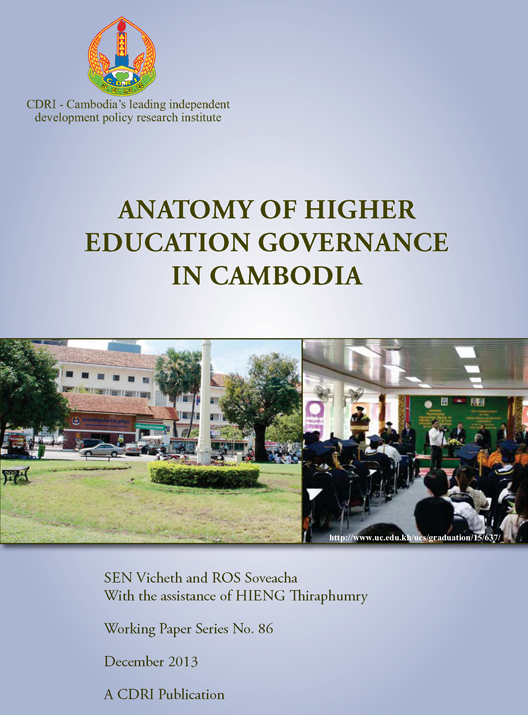
Anatomy of Higher Education Governance in Cambodia
Higher education plays a fundamental role in enhancing the intellectual capacity essential to creative leadership in all fields of national activity and in providing a skilled workforce able to respond to changing labour market demands. All citizens, and particularly the poor, need the opportunity and the skills to participate produc...
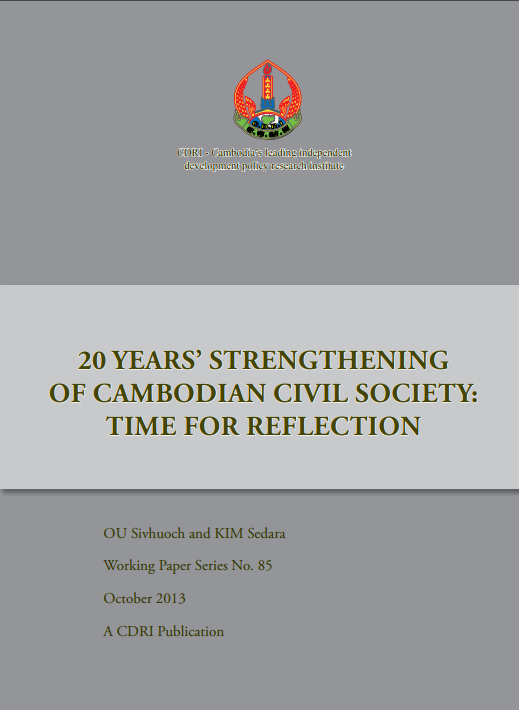
20 Years’ Strengthening of Cambodian Civil Society: Time for Reflection
In the 1980s and 1990s a large number of NGOs emerged in Cambodia, primarily in response to donors’ agendas on strengthening civil society to curb repressive developing country governments and support a broad democratisation process. Over the last 20 years, donor money has been concentrated on funding a small group of NGOs, mostly located in the co...
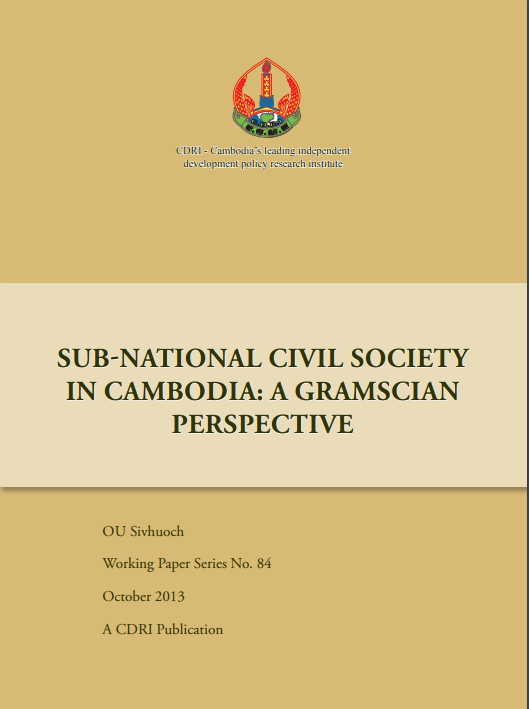
Sub-National Civil Society in Cambodia: A Gramscian Perspective
Several authors (particularly Laundau 2008; Henke 2011) label Cambodian national civil society as a sphere that is neither apolitical nor autonomous, but influenced or co-opted by and blurred with the state. They posit that a Gramscian perspective is relevant to interpreting civil society in the country. This article suggests that the application o...
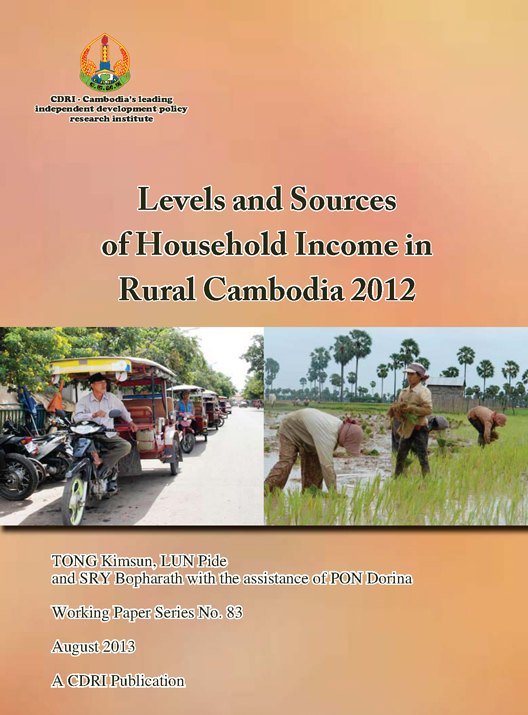
Levels and Sources of Household Income in Rural Cambodia 2012
This study investigates the levels and sources of household income in rural Cambodia from 2004 to 2012, using data from the Cambodia Socio-Economic Survey and a 2012 rural household survey conducted by CDRI. It reveals that rural households primarily depend on agriculture, though its share in total income declined over time, while salaries and...
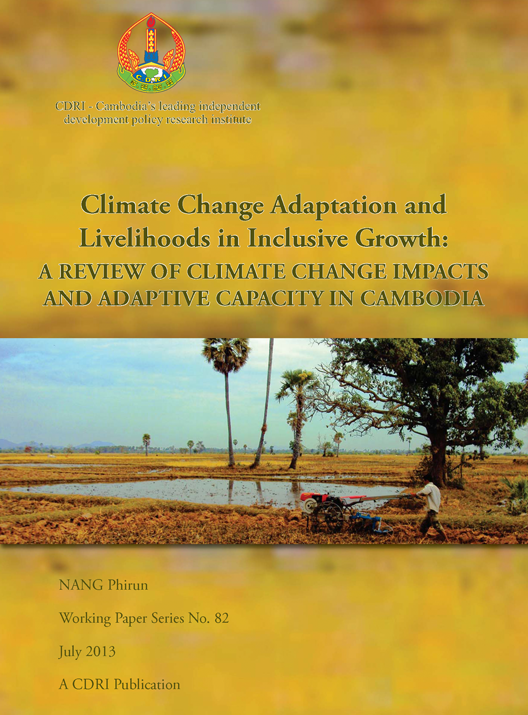
Climate Change Adaptation and Livelihoods in Inclusive Growth: A Review of Climate Change Impacts and Adaptive Capacity in Cambodia
This review outlines existing knowledge (context-specific and localised) of climate change impacts, vulnerability and adaptation, assesses the limitations of different frameworks and approaches used by various initiatives in Cambodia, and identifies knowledge gaps for future research. It explores the impacts of climate change on livelihoods through...
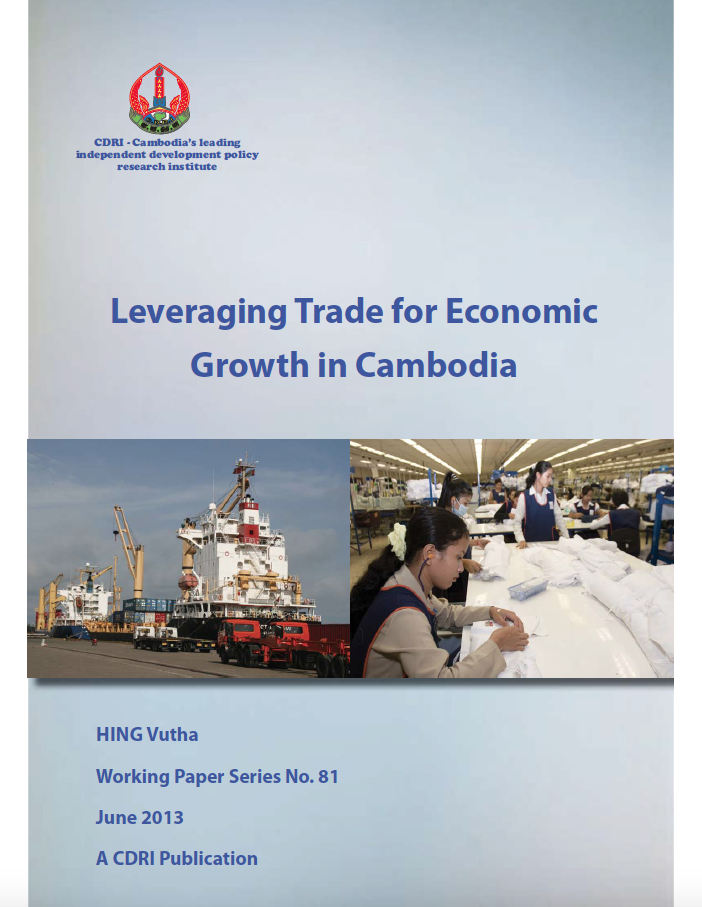
Leveraging Trade for Economic Growth in Cambodia
This paper attempts to answer three important questions: (1) Why does trade matter? (2) Whyis trade vital for Cambodia’s growth? (3) What policy priorities for Cambodia will make tradework for economic growth?First, trade matters because it increases growth. Openness to trade affects growth by: allowing a country to exploit its comparative adv...
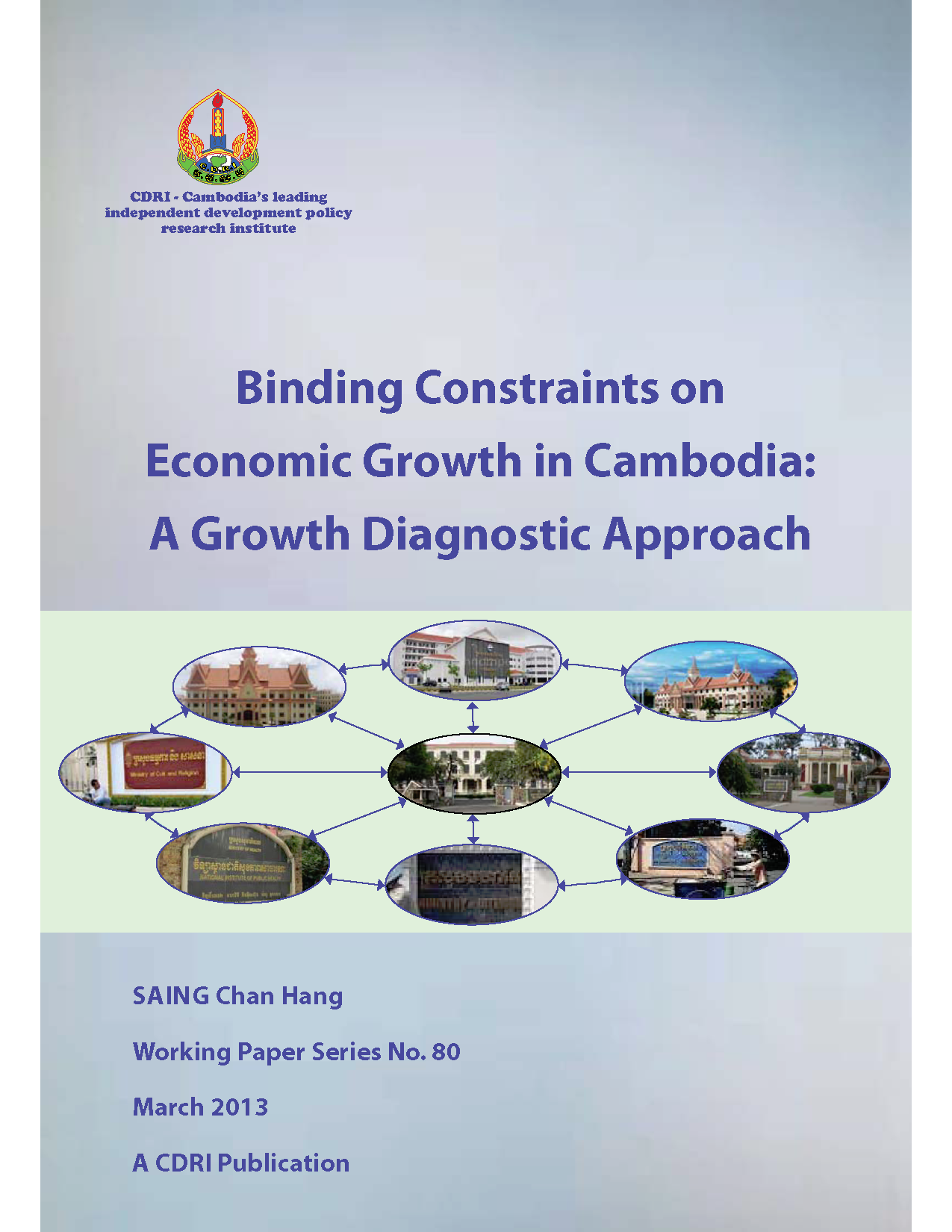
Binding Constraints on Economic Growth in Cambodia: A Growth Diagnostic Approach
This study applies the growth diagnostic approach, developed by Hausmann, Rodrik and Velasco in 2005, to identify binding constraints on Cambodia’s growth after the crises in 2008 and 2009. Growth was strong during 1999-2009 at an average annual rate of 9.0 percent, but then slowed to 6.7 percent in 2008 and dropped to 0.1 percent in 2009, bef...
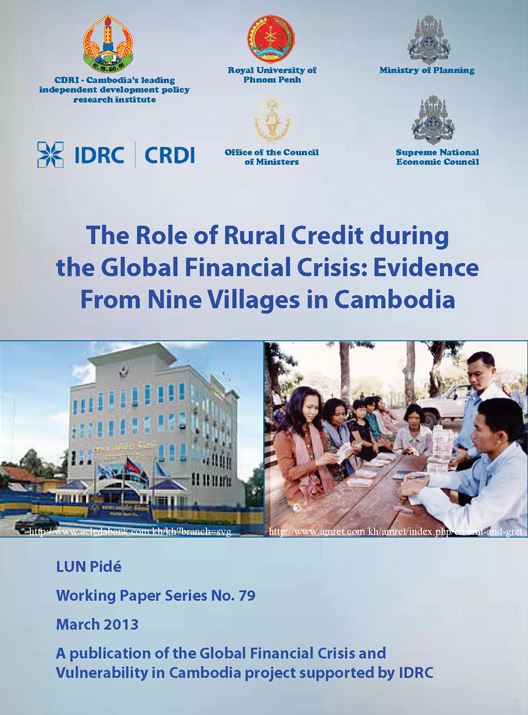
The Role of Rural Credit during the Global Financial Crisis: Evidence From Nine Villages in Cambodia
This paper studies the role of rural credit in Cambodia during the global financial and economic crisis that began in 2008. The paper briefly reviews rural credit in Cambodia during 2008, analyses rural households’ formal and informal credit demand during the crisis and proposes policy options. The results suggest that household dema...
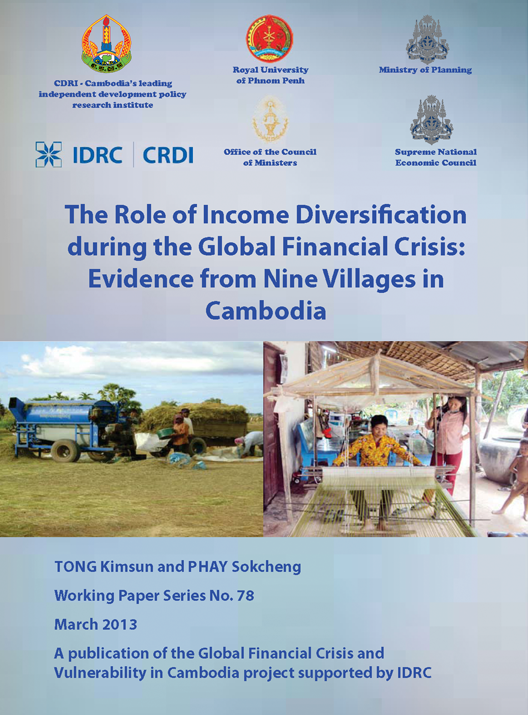
The Role of Income Diversification during the Global Financial Crisis: Evidence from Nine Villages in Cambodia
This paper uses four-period panel data covering the years 2001, 2004, 2008 and 2011 to analyse the roles of rural income diversification during the global financial crisis. Income diversification is commonly defined as a proportion of income derived from non-farm activities or the number of income portfolios. However, the use of such measures i...
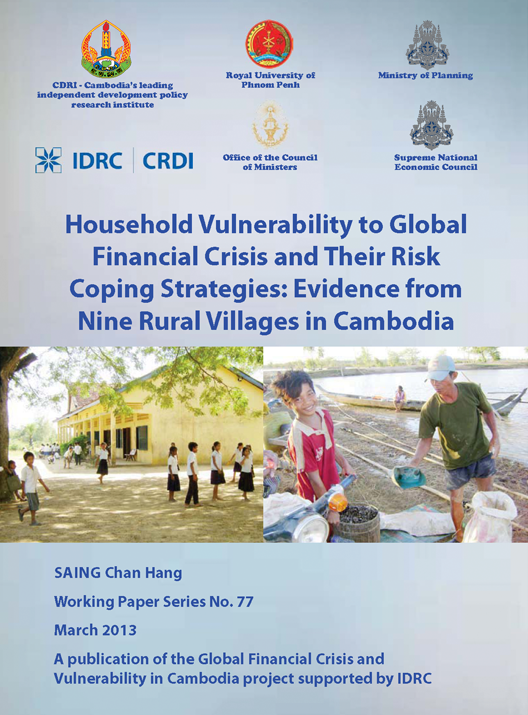
Household Vulnerability to Global Financial Crisis and Their Risk Coping Strategies: Evidence from Nine Rural Villages in Cambodia
Although economic growth started to show signs of recovery in early 2010, a consumption shortfall was pervasive across Cambodian sample villages and household wealth statuses, reflecting the protracted effect of the global financial crisis up to March 2011. This paper aims to investigate the extent of rural household vulnerability and their use an...
